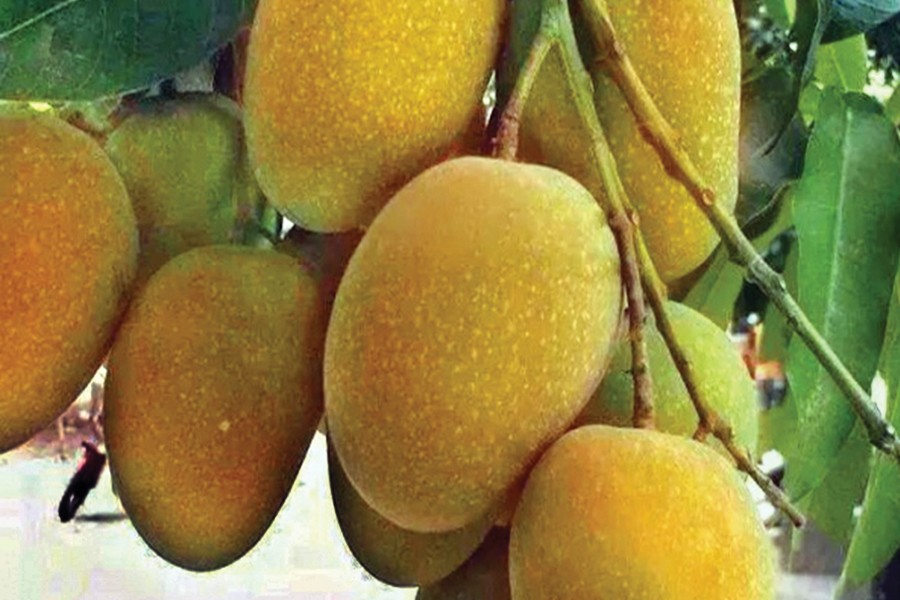Mango production under contract farming is gaining momentum in the southern districts.
It is set to boost export of the fruit this year, said insiders.
Adoption of good agricultural practice (GAP) by farmers increased notably during the last one year. That will help raise mango shipment by more than 600 per cent this season, they opined.
An effective platform of farmers, private sector and the government agencies has helped producers in five upazilas of Satkhira and one upazila in Jessore to grow safe mango for both home and abroad.
More than 266 hectares of land have been brought under contract farming in the region against only 50 hectares last year.
Mango production under contract farming is expected to cross 2,000 tonnes this year from 250 tonnes of last year, said Mohammad Moziball Hoque, senior manager - supply chain and business development of Solidaridad Network Asia, Bangladesh.
Solidaridad, a Netherlands-based organisation, has been working with the farmers for the last few years to help them produce fruits and vegetables free from harmful pesticides and chemicals and take their produce to mainstream markets.
Mr Hoque said last year a total of 70 tonnes of mango were exported out of 250 tonnes produced by 250 contract farmers.
This year the production is expected to cross 2,000 tonnes, as 500 farmers have been brought under the process with an increase in land area brought under mango cultivation.
Zahirul Islam, proprietor of export-based Islam Enterprise, told the FE that they targeted export of 50 tonnes of mango this year, which will include varieties like himsagar, lengra and gobindabhog.
He said more than 500 tonnes of mango are expected to be shipped to the EU and Middle-East countries by 14 exporters.
"We have been working with the farmers with the help of the Department of Agricultural Extension (DAE) and Solidaridad for the last three years to produce safe mango. We have planted a number of new trees as well as worked on many old gardens," he added.
Shariful Alam Saurav, proprietor of Sohan Enterprise, said this year the total mango export may exceed 500 tonnes worth US$ 3.0 million against 70 tonnes last year.
He said mango export came to a halt in 2014-15 amid imposition of a ban by the EU. Apart from mango, export of fruits and leafy vegetables has also started from this year to the EU following introduction of GAP under contract farming.
Contract farming has been gaining popularity among the farmers for last three years, as they have found it profitable. A leading super chain - Agora - is also working with the farmers and traders in this regard, he added.
According to Agora, the company is going to launch an awareness campaign for adopting GAP in the fruit gardens across the country.
The campaign has also targeted to make people conscious about consuming nutrition-rich, safe mango to help both farmers and consumers.
Moziball Hoque also said since 2015, his organisation in collaboration with DAE has developed smallholder-friendly 'scalable contract farming' model, where GAP is being implemented.
The process started on a pilot basis in Satkhira in 2015, and last year around 250 tonnes of mango were sold to the national retail chain shops as well as to the export markets especially the UK, Italy and France.
He said mango varieties like himsagar, langra, amropali will be exported to various European markets, while the rest will be delivered to the Bangladeshi consumers through different chain shops like Agora and Unimart etc and corporate houses like Grameenphone.
Export of fruits declined to $3.0-4.0 million in last three financial years from $30 million in 2014 due to an EU ban over Bangladeshi mango. The export is expected to resume from the next financial year, and local traders are expecting shipments worth $ 10 million.


